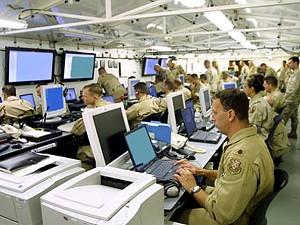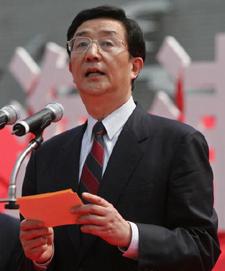WASHINGTON D.C.—China’s Ministry of Information Industry recently claimed that large amounts of state and military confidential data were stolen through the Internet. Foreign enemies are using the Internet as a major destructive tool.
However, dissidents think the statement is an excuse to intensify Beijing’s control over the Internet and to repudiate western countries recent accusations of Beijing hacking into western governments websites.
In the September issue of Forum for Chinese Party and Government Staff, an official publication of the China Central Party School, Lou Qinjian, Deputy Minister for Information Industry, said in an article that the Internet has become foreign enemies’ major tool for political infiltration and hacking into high priority departments.
Lou also claims that in recent years large amounts of confidential documents from the Party, the government, and the military have been stolen through the Internet and have caused Beijing great harm. Lou declined to give details of the espionage but urged Beijing to take sweeping measures to monitor all Internet information in order to stop computer threats.
Recently Beijing denied western media’s reports accusing them of hacking into government computers in the U.S., Germany, and England. Some observers believe Beijing’s accusation of western hackers at this particular moment is to denounce western media reports and find an excuse to further control Internet information.
Huang Qi, administrator of 64tianwang.com and renowned dissident, said Beijing’s statement of confidential information leaking through Internet isn’t logical, “A lot of cases of military corruption and human rights violation against veterans are exposed on the Internet. The authorities claimed that is ‘leaking military secrets.’ Authorities often oversimplify the classification and eventually put public information or human rights violation news as confidential, and suppress it”.
An observer said human rights ideology is widespread in China now and people want to participate in politics. The arrival of the Internet helps people to voice their opinion more powerfully. Beijing senses this trend is threatening its dictatorship and has to continue to intensify its suppression of information freedom.
Huang said that the Internet provides a powerful publication tool for a democratic movement in China. It’s getting harder for Beijing to block any information it wants. Technically China can maximize its suppression of freedom on the Internet but not beyond a certain point; this suppression will harm China’s business and information technology, and retard the development of the nation’s economy.
“The Internet is a double-edged sword. With proper use, authorities can push society to greater prosperity and civilization. At the same time, information flow will promote democracy in China and destroy the Chinese Communist Party’s totalitarianism,” said Huang.
An analyst said suppressing freedom of information on the Internet is a clear policy in China and the technology to control the Internet is maturing quickly. Freedom of speech on the Internet in China will still be heavily suppressed for a while. However, in the long run, surging Internet information will crash China’s “Internet Berlin Wall.”


